Setting: Harvard University and Hungary
Pages: 432
Geemiz Rating: 3/5
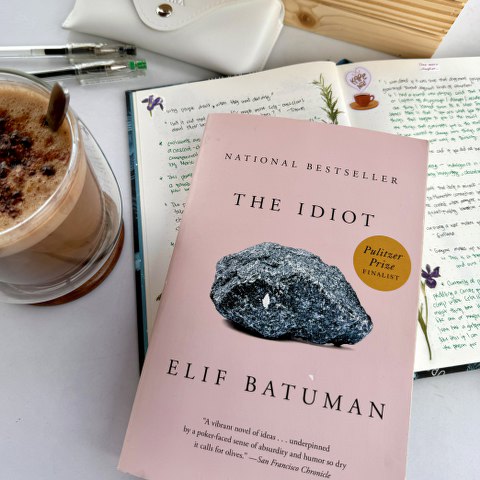
This is another book review that no one asked for, but I will keep on writing because I love to.
I chose this book because, first, it is a Pulitzer Prize finalist, and I get the impression that Pulitzer novels are difficult to read and contain interesting topics that I find cringe-worthy or difficult to digest, and I like challenging myself by reading such books on occasion. The second reason is the title “The Idiot”; I assumed it was a retelling or related to Fyodor Dostoevsky’s “The Idiot,” but there is none.
“I thought that was the point of writing stories: to make up a chain of events that would somehow account for a certain mood – for how it came about and for what it lead” – Selin
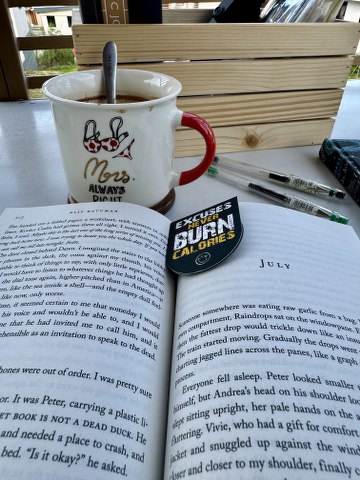
I believe this is my first coming-of-age book in a long time, as well as a novel in this semi-autobiographical style of storytelling.
The most enjoyable part for me was learning about diverse literature (books), movies, music, and art. Because Elif Batuman is a Harvard alumnus, I presume that the books mentioned here are those read by Harvard literary students, and as a wanabe lit student, this is an excellent source of recommendations.
“You didn’t just write a raw cry of suffering. It would be boring and self-indulgent. You had to disguise it, turn it into art. That’s what literature was. That was what required talent, and made people want to read what you wrote, and then they would give you money.” – Selin
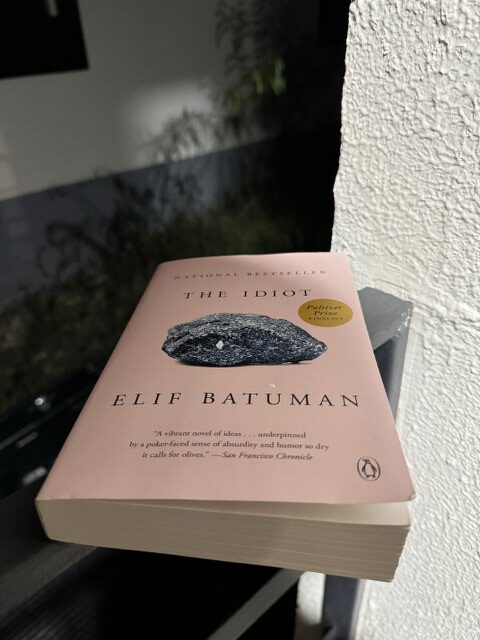
Being an Ivy League student is a dream for many people, and seeing Selin and her friends’ journey feels like, oh! This is just another school where you must work hard, make friends or even a lover, and be exposed to a variety of experiences in order to prepare for your desired job path in the larger world.
“She was proud of being able to borrow money at a loss from her retirement fund and give it to Harvard. I felt proud of her, too. But I did not feel proud of myself. It made the college application process feel, in retrospect, somehow hurtful and insulting. All the essays and interviews and supplements and letters seemed to be about you, about your specialness – but actually it was all about shaking your parents down for money” – Selin
As with most coming-of-age stories, romance is always present. Good thing Elif Batuman added a twist. Many people have probably had similar relationship experiences with Selin and Ivan. The “it’s complicated” label. They like each other but are not together.
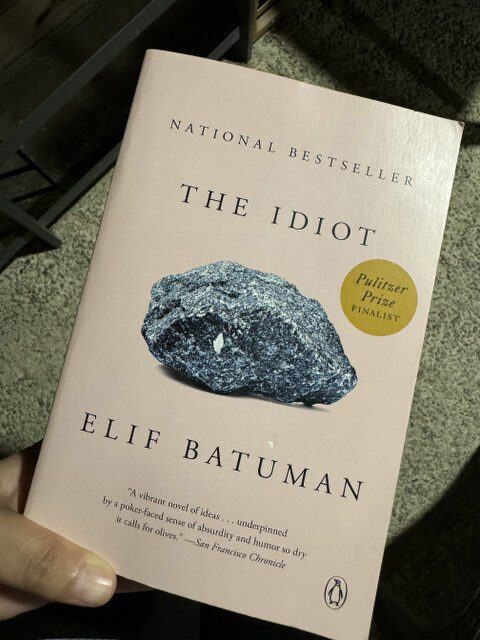
“but wasn’t that itself a miracle – that love really is an obscure and unfathomable connection between individuals, and not an economic contest where everyone was matched up according to how quantifiably lovable they were?” – Selin
I don’t like the scene where Selin and Ivan flirt with each other despite knowing Ivan has a girlfriend. Especially Ivan, who makes the initial move. Dude, can you break up with your girlfriend first? On the other side, most of us have liked someone despite knowing that they are already committed to someone else. However, I feel this usually occurs when both individuals have not yet developed a deep bond with their partners, because otherwise, this type of “its complicated” relationship would not occur. Also, in some ways, we are similar to Selin and Ivan in that we perform stupid acts for people we like.
I admire Selin’s intelligence and curiosity. At the same time her questioning of practically everything and interpretation of events annoys me. Maybe because I have my own interpretation and belief, and I do not resonate with her cynicism and lack of enthusiasm. I tend to look at the brighter side while Selin doesn’t. So, make sure to keep an open mind when reading this book.
“Everyone makes up a narrative about their own lives” – Selin
If you are interested in a novel with a lot of literary references, this is the book for you. Explore Selin’s coming of age. Grow with her as she navigates university life. Be shocked at how introverted academics express their affection, which is precisely shown here.
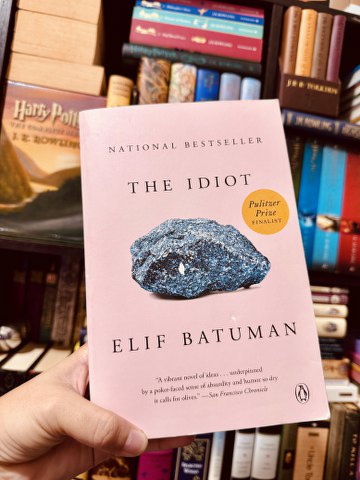
Here are some of the notable books and authors mentioned in The Idiot by Elif Batuman:
| No | Autor | Book Title |
| 1 | Fyodor Dostoevsky | The Double |
| 2 | Fyodor Dostoevsky | Crime and Punishment |
| 3 | Fyodor Dostoevsky | Crime and Punishment |
| 4 | Leo Tolstoy | Anna Karenina |
| 5 | Leo Tolstoy | War and Peace |
| 6 | Charles Dickens | Bleakhouse |
| 7 | Charles Dickens | Little Dorrit |
| 8 | Gustave Flaubert | Madame Bovary |
| 9 | Gustave Flaubert | Three Tales |
| 10 | Honoré de Balzac | Pere Goriot |
| 11 | Honoré de Balzac | Lost Illusions |
| 12 | Anton Chekhov | The Darling |
| 13 | Anton Chekhov | Uncle Vanya |
| 14 | Milan Kundera | The Unbearable Lightness of Being |
| 15 | Milan Kundera | The Book of Laughter and Forgetting |
| 16 | Milan Kundera | The Joke |
| 17 | William Shakespeare | Hamlet |
| 18 | William Shakespeare | King Lear |
| 19 | Thomas Mann | The Magic Mountain |
| 20 | Thomas Mann | Death in Venice |
| 21 | Virginia Woolf | Mrs. Dalloway |
| 22 | Vladimir Nabokov | Lectures of Literature |
| 23 | Mikhail Lermontov | The Fatalist |
| 24 | Dante Alighieri | Inferno |
| 25 | Edgar Allan Poe | Southern Literary Messenger |
| 26 | Saki; H. H. Munro | The Collected Works of Saki |
| 27 | Oleg Cassini | Autobiography of Oleg Cassini |
| 28 | Pablo Neruda | Ode to an Atom |
| 29 | Istvan Orkeny | Favorite Hungarian One-Minute Tales |
| 30 | Joris-Karl Huysmans | Against Nature |
| 31 | Karl Marx and Friedrich Engels | The Communist Manifesto |
| 32 | Ayn Rand | The Fountainhead |
| 33 | Bram Stoker | Dracula |
| 34 | Abigail Van Buren / Jeanne Phillips | Dear Abby Anthology |
| 35 | Albert Camus | The Plague |
| 36 | André Breton | Nadja |
| 37 | Collection of Middle Eastern Folktales | One Thousand and One Night or Arabian Nights |
| 38 | E. L. Konigsburg | From the Mixed-up Files of Mrs. Basil E. Frankweiler |
| 39 | Geoffrey Chaucer | The Canterbury Tales |
| 40 | George Eliot | The Mill on the Floss |
| 41 | George Wilkins and William Shakespeare | Pericles, Prince of Tyre |
| 42 | Quentin Tarantino | Pulp Fiction |
| 43 | Raymond C. Clark and Patrick R Moran | The ESL Miscellany |
| 44 | Robert Atkins | Dr. Atkins Diet Revolution |
| 45 | Sigmund Freud | Interpretation of Dreams |
| 46 | Søren Kierkegaard | A Fragment of Life Either/Or |
| 47 | Stefen R. Covey | The 7 Habits of Highly Effective People |
| 48 | Unknown | Beowulf |
| 49 | Weekly Journal | Times Literary Supplement |
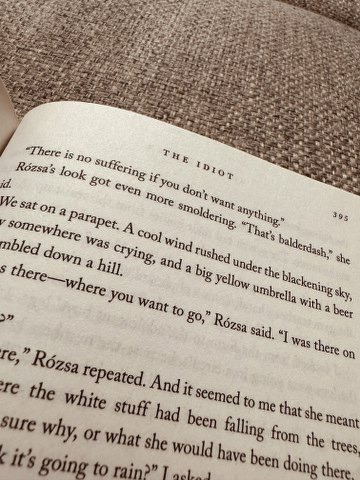
Quotes from the book The Idiot by Elif Batuman
“Nobody said that we were put on this earth for our own entertainment” – Selin
“Other people couldn’t be the reason why you did anything” Selin
“By the time you had written down what time it was, it was already later than it had been” – Selin
“It’s so hard to be sincere without sounding pretentious” – Selin
“Because there’s time and place for everything” – Ivan
“Isn’t it sad that girls are so much more self-conscious about their body’s, compared with boys?” – Dawn
“The problem of a group photograph was who was going to take it. Andrea and I always volunteered, but the rules of etiquette dictated that the camera owner had to try to get a stranger to take the picture so everyone would be in it” – Selin
“Why was Plain a euphemism for ugly, when the very hallmark of human beauty was its plainness, the symmetry and simplicity that always seemed so young and so innocent” – Selin
“Suddenly it occurred to me that maybe the point of writing wasn’t just to record something past but also to prolong the present, like in One Thousand and One Night, to stretch out time until the next thing happened” – Selin
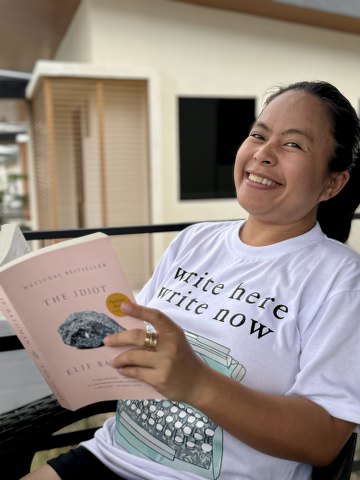
Have you read the book? I love to hear what you think!
Read More of my Book Reviews Here
More of my book musings and flexing
https://www.instagram.com/geemizbooks/
Let Us Connect:
I’m on Instagram, Facebook, Youtube, Twitter, and LinkedIn